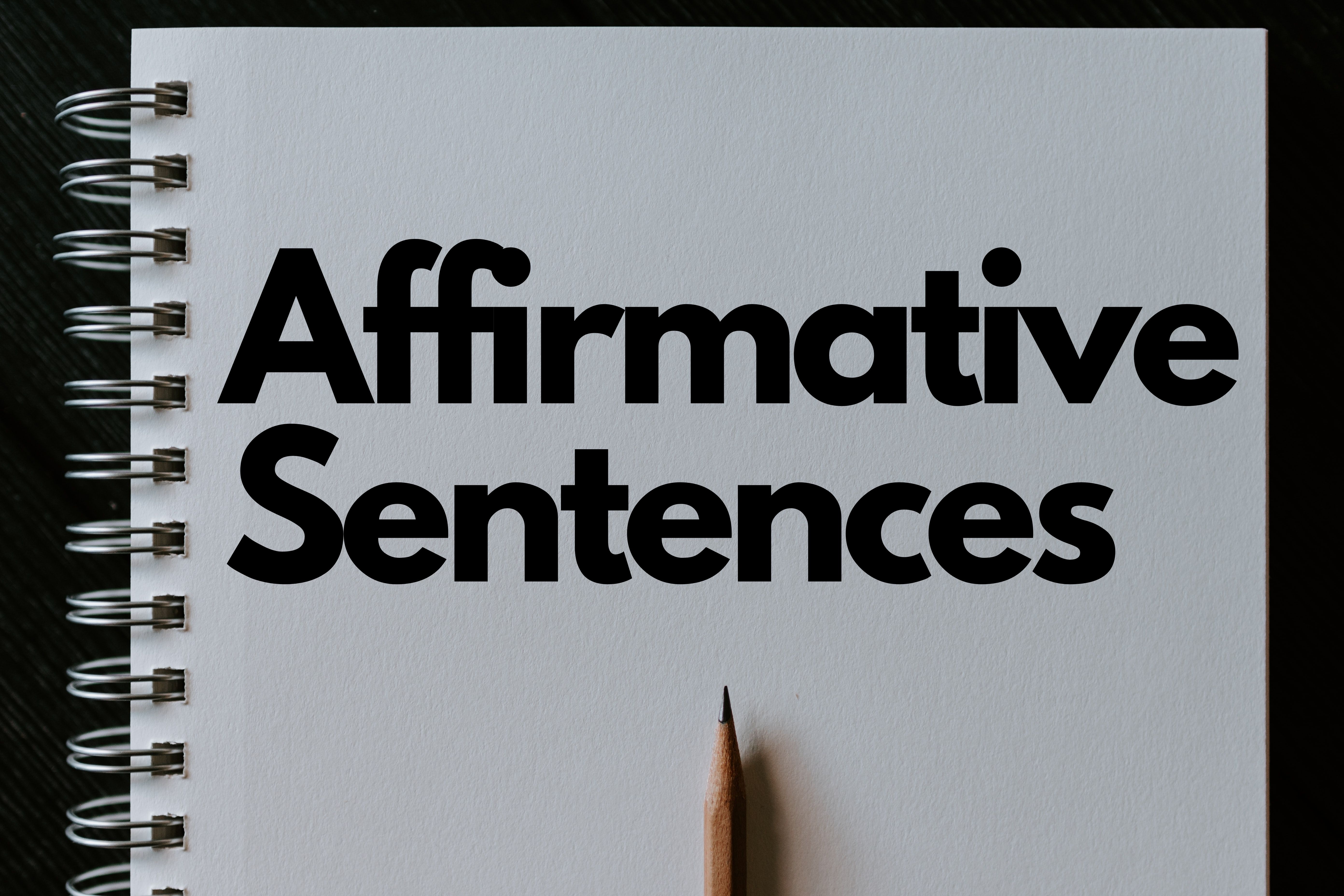Affirmative Sentences
A sentence, simply put, is a group of words put together to convey some meaning. We can form sentences in many different ways which convey the same message intended. However, their effectiveness depends on the situation at hand. For example: To confirm something, using a negative sentence wouldn’t be as effective as using an affirmative sentence. This way, we can form shorter, to the point sentences and avoid any confusion that may have arisen due to the usage of any other sentence type
In English Language, we can identify three distinct forms of verbs that are used in different types of sentences: the affirmative, the negative and the interrogative.
Affirmative sentences basically assert that something is true or valid.
For Example: Richa is here.
While, Negative sentences, deny something.
For Example: Richa is not here.
And, Interrogative sentences are used to ask a question.
For Example: Is Richa here?
One of the most common errors that we make, as executives is that we commonly use negative or interrogative sentences in our daily written or oral communications. Instead, to create and maintain an atmosphere of positivity, we should try and frame the sentences used in our daily communication in affirmative as much as possible.
For ex: You have a subordinate, who hasn’t been able to complete a particular task and you want to speak to him about the same. Instead of using phrases like ‘Why haven’t you completed this?’ or ‘The work was not completed by you’, using a phrase like, ‘Do you need any assistance in completing your work?’, can help you create an atmosphere of positivity, establish good interpersonal relationships and at the same time, motivate your peers.
Another common mistake is that we don’t frame the sentences properly or omit a word or add unnecessary words.
For ex: “When you speak?” This Interrogative sentence is structurally wrong as we see there is an omission of words. It should be “When will you speak?”
“Richa is a girl, girl who lives above us”. In this affirmative sentence, we have used too many words. The right sentence should be “Richa is a girl, who lives above us”.
As we know, there are 12 types of tenses in English Language. Let us see how we can frame, affirmative, interrogative and negative sentences for each of them:
|
Verb Tenses |
Affirmative |
Negative |
Interrogative |
|
Present Simple |
They have a house |
They don't have a house |
Do they have a house? |
|
Present Continuous |
She is playing |
She is not playing |
Is she playing? |
|
Past Simple |
I read a book |
I did not read a book |
Did I read a book? |
|
Past Simple Continuous |
It was raining |
It wasn't raining |
Was it raining? |
|
Present Perfect |
We have seen it |
We haven't seen it |
Have we seen it? |
|
Present Perfect Continuous |
You have been working hard |
You haven't been working hard |
Have you been working hard? |
|
Past Perfect |
They left for Paris |
They did not leave for Paris |
Did they leave for Paris? |
|
Past Perfect Continuous |
She had been studying |
She hadn't been studying |
Had she been studying? |
|
Future Simple |
I will go for a walk |
I won’t go for a walk |
Will I go for a walk? |
|
Future Simple Continuous |
She will be travelling |
She won't be travelling |
Will she be travelling? |
|
Future Perfect |
She will have finished |
She won't have finished |
Will she have finished? |
|
Future Perfect Continuous |
You will have been working |
You won't have been working |
Will you have been working? |
Therefore, we need to keep in mind the proper functionality of each of these types of sentences and practice their use in order to avoid making any mistakes. Being said that, we should also develop a habit for positive communication. By focusing on the positives or by pointing out the negative using a positive sentence can make our communication process more effective and productive.


